Salmon, Kaki and Samurai =/= Lachs, Kaki und Samurai 👹🍣🎎 Fascinating Japan ENG-GER
Last weekend we were finally got out again and had a little look around Murakami, a small seaside town at the northern end of Niigata Prefecture. Murakami is known as the salmon capital of the country and also as the most northern tea-growing area in Japan.
In Edo times, the town had a castle, Murakami-jo (村上城), from which the Naito clan ruled and controlled the town and its surroundings. In the turmoil of the Boshin War, the town and castle were attacked and captured by the new government's troops in 1868. In these battles Murakami-jo fell victim to fire, after which the remaining structures were demolished as well. But even today the remains of the walls bear witness to the former castle, which is now counted among the important national sites of Japan.
In the more than 150 years since the Meiji Restoration, Murakami has surely changed, and today there is little in the cityscape that hints at its former history. Only Maizuru Park still contains three former samurai houses, built at the end of the Edo period, and which can be visited today.
And since we were already in the town, we stopped by for a quick visit and looked around...
DEUTSCH
Letztes Wochenende waren wir endlich mal wieder unterwegs und haben uns ein wenig in der Nähe von Murakami umgesehen, einer am Meer gelegen, kleinen Stadt am nördlichen Ende der Niigata Präfektur. Bekannt ist Murakami unter anderen als Lachshauptstadt des Landes und auch als am weitesten nördlich gelegenes Teeanbaugebiet Japans.
Zu Edo-Zeiten gab es hier eine Burg, Murakami-jo (村上城), von der aus der Naito-Clan die Stadt und seine Umgebung regierte und kontrollierte. In der Wirren des Boshin-Krieges wurde die Stadt und die Burg 1868 von der Truppen der neuen Regierung angegriffen und erobert. Murakami-jo wurde in diesen Kämpfen Opfer eines Feuers, anschließend wurden dann auch noch die restlichen Bauwerke abgerissen, aber auch heute noch zeugen Mauerreste von der einstigen Burg, welche nun zu den wichtigen nationalen Stätten Japans gezählt wird.
In den über 150 Jahren seit der Meiji-Restaurierung hat sich Murakami natürlich gewandelt und heute ist im Stadtbild wenig zu sehen, was auf die einstige Geschichte hinweist. Lediglich im Maizuru-Park finden sich noch drei frühere Samurai-Häuser, die zum Ende der Edo-Zeit entstanden sind, und die heute besichtigt werden können.
Und da wir schon einmal in der Stadt waren, sind wir auf einen kurzen Besuch vorbeigekommen und haben uns etwas umgesehen..
As in several places in town, you can see salmon hanging out to dry in front of one of the former residences. As mentioned at the beginning, Murakami is the Japanese salmon capital. Already in the days of the samurai, fish were caught in the nearby Miomote River, and the town developed into an important trading center dedicated to catching and selling salmon.
Since there were no refrigerators at that time, the people of Murakami had to find another method of preserving the fish. For centuries, salmon have first been gutted, then soaked in salt and finally hung in the air to dry. The fish was hanging there for several months until it was ready to be eaten and replaced with fresh salmon. Especially in the cold and hard winter months this protein-rich food will probably have been essential for survival.
Wie an mehreren Stellen der Stadt hingen auch vor einem der früheren Wohnhäuser Lachse zum trocknen aus. Wie Eingangs erwähnt, ist Murakami die Japanische Lachshauptstadt. Schon zur Zeit der Samurai wurden die Fische im nahegelegen Miomote-Fluss gefangen, und die Stadt entwickelte sich zu einem bedeutenden Handelsviertel, das sich dem Fang und Verkauf von Lachs widmete.
Da es zur damaligen Zeit noch keine Kühlschränke gab, mussten die Bewohner Murakamis eine andere Methode zur Konservierung des Fisches finden. Schon seit Jahrhunderten werden die Lachse zunächst ausgenommen, dann in Salz eingeweicht undschliesslich zum Trocknen an die Luft gehängt. Dort hängen die Fische mehrere Monate bis sie zum Verzehr bereit sind und wieder mit frischem Lachs ersetzt werden. Besonders in den kalten und harten Wintermonaten wird diese proteinreiche Nahrung wohl überlebenswichtig gewesen sein.
In earlier times, of course, people didn't have the luxury of modern heating systems, and in many houses there was one room with a fireplace in the middle, which provided heat and where cooking was done at the same time. Today we might feel rather romantic and nostalgic when lookin at scenes like this, but a few centuries ago many people were glad to have at least one warm and dry room during the cold season. In some of the other rooms it must have been bitterly cold.
In früheren Zeiten gab es natürlich auch noch nicht den Komfort modernen Heizungen, und in vielen Häusern gab es ein Zimmer, in dessen Mitte es eine Feuerstelle gab, die für Wärme sorgte, wo aber auch gleichzeitig gekocht wurde. Heute wirkt dieser Anblick leicht romantisch, aber vor einigen Jahrhunderten waren viele Menschen froh, wenn sie in der kalten Jahreszeit wenigstens ein warmes und trockenes Zimmer hatten. In den anderen Räumen dürfte es teilweise bitterkalt gewesen sein.
There was also an display old suits of armor, as the main task of the samurai was ultimately to remain loyal to their feudal lord, the daimyo, and to defend him in wars and battles. The helmet and large parts of the armor were reinforced with metal plates, which can protect the fighter in a sword fight, but were mostly useless against modern firearms. But in Edo times, the possession of muskets and similar weapons was punishable by law, and even the carrying of swords was allowed only to the class of samurai.
Ausgestellt wurden auch zwei alte Rüstungen, denn die Hauptaufgabe der Samurai war es letztendlich ja auch, ihrem Feudalfürsten, dem Daimyo die Treue zu halten und ihn in Kriegen und Kämpfen zu verteidigen. Der Helm und große Teile der Rüstung ist mit Metallplatten verstärkt, welche den Kämpfer zwar bei einem Schwertkampf schützen können, gegen moderne Feuerwaffen aber meist nutzlos waren. Aber zu Edo-Zeiten war der Besitz von Musketen und ähnlichen Waffen unter Strafe gestellt worden und auch das Tragen von Schwertern war nur der Klasse der Samurai erlaubt.
The metal helmet alone weighed several kilos, and the fighters were certainly happy when they could finally take off the whole armor. After the period of civil wars, the Edo-time was consconsidered to be a peaceful era, when the Tokugawa-Shogun managed to unify and pacify the country. Combative conflicts were severely punished and were rare, and even though Japan isolated itself from the outside world at that time, this period is considered one of the most important and productive in the history of Japan, with the arts and crafts flourishing.
Allein der metallene Helm wog mehrere Kilo, und die Kämpfer waren mit Sichrheit frph, wenn sie die ganze Rüstung endlich wieder abnehmen konnten. Die Edo-Zeit gilt auch als eine friedliche Epoche, nach der Zeit der Bürgerkriege hatte es den Tokugawa-Shogun geschafft das Land wieder zu einen und zu befrieden. Kämpferische Auseinandersetzungen wurden hart bestraft und waren selten, dafür florierte Kunst und Handwerk und auch wenn Japan such damals von der Außenwelt abgeschieden hat, gilt diese Zeit als eine der wichtigsten und produktivsten in der Geschichte Japans.
Not only salmon is hung up to dry, but also persimmon fruits. Harvest time is now in mid-autumn and untreated the fruits are usually inedible. They fruit is usually soaked first in high-proof alcohol, and then goes on sale and onto people's tables. In some cases, they are also dried and then kept longer and eaten later. In any case, this sight tells you that we are in the middle of autumn and winter is just around the corner.
Nicht nur Lachs wird zum Trocknen aufgehangen, sondern auch Kaki-Früchte, die Persimonen. Erntezeit ist jetzt Mitte Herbst und unbehandelt sind die Früchte meist ungenießbar. Meist weichen sie erst in hochprozentigem Alkohol, und gelangen dann in den Verkauf und auf die Tische der Menschen. Teilweise werden sie aber vor der Verzehr auch erst noch getrocknet und später als Trockenobst verzehrt. Auf jeden Fall weist einen dieser Anblick darauf hin, dass wir mitten im Herbst sind und der Winter vor der Tür steht.
In modern times, you can go to the supermarket at any time, even in winter, and help yourself from an endless supply of food. In earlier times, people in this part of Japan had to take good precautions and stock up on supplies for the cold season. Dried fish and dried fruit were an important part of daily cuisine in winter and were essential for life. Fortunately, there are some types of vegetables that thrive even under the snow and provide important vitamins and nutrients even in cold and snowy winter.
Our little tour was once again quite educational, as I still have a lot to learn and discover, especially about the history of Japan. Opportunities like this are just perfect for me to immerse myself in the many local stories and tales, which round up the bigger picture. We'll see where it takes us next time, I'll definitely report back.
In heutigen Zeiten kann man jederzeit, auch im Winter, in den Supermarkt gehen und sich aus einem unerschöpflichen Warenangebot bedienen. Zu früheren Zeiten mussten die Menschen in diesem Teil Japans gut vorsorgen und Vorräte für die kalte Zeit anlegen. Trockenfisch und Trockenobst waren im Winter wichtiger Bestandteil der täglichen Küche und lebensnotwendig. Glücklicherweise gibt es eine Arten von Gemüse, die sogar unter dem Schnee gedeihen und aich im Winter dafür sorgen, dass wichtige Vitamine und Nährstoffe auf den Tisch kommen.
Unser kleiner Ausflug war wieder einmal lehrreich,denn insbesondere was die Geschichte Japans angeht, habe ich immer noch eine Menge hinzuzulernen und zu entdecken. Da kommen mir solche Gelegenheiten genau richtig, auch ein wenig in die lokaleren Geschehnisse einzutauchen, die das große Gesamtbild abrunden. Mal schauen, wo es uns das nächste Mal hinzieht, ich werd auf jeden Fall wieder berichten.
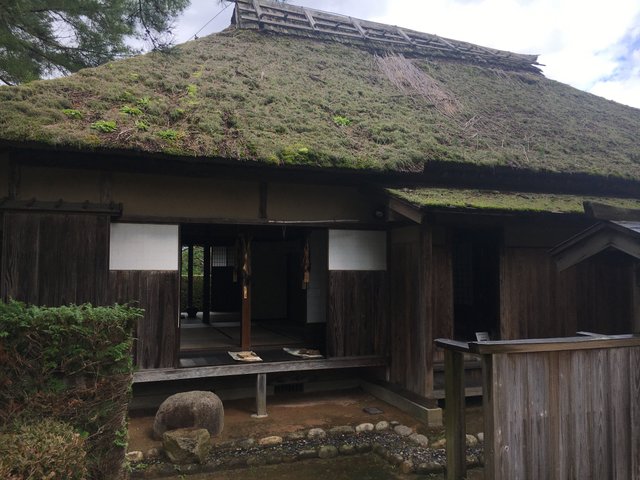
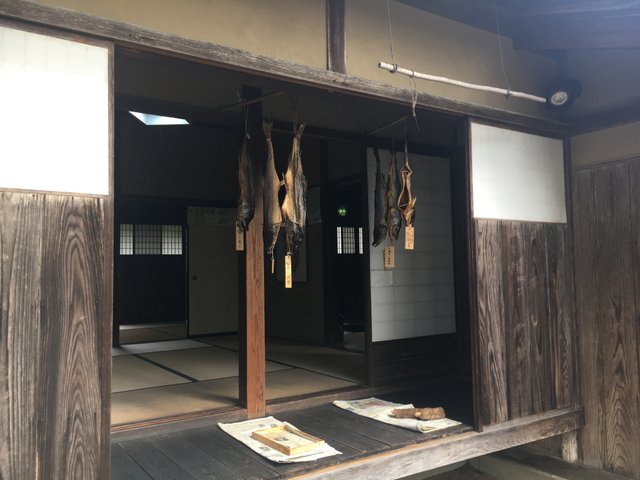
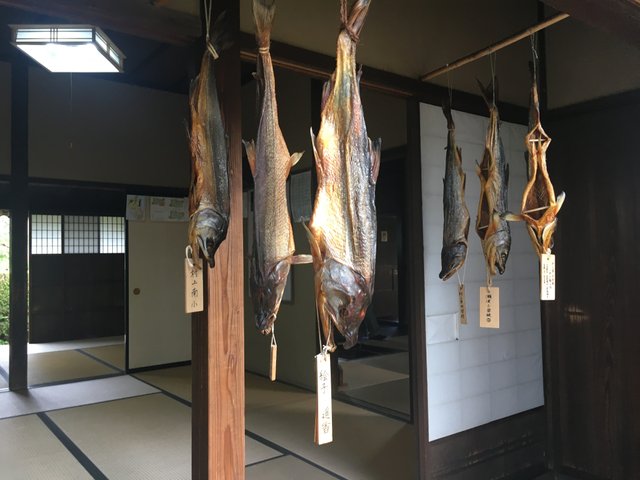
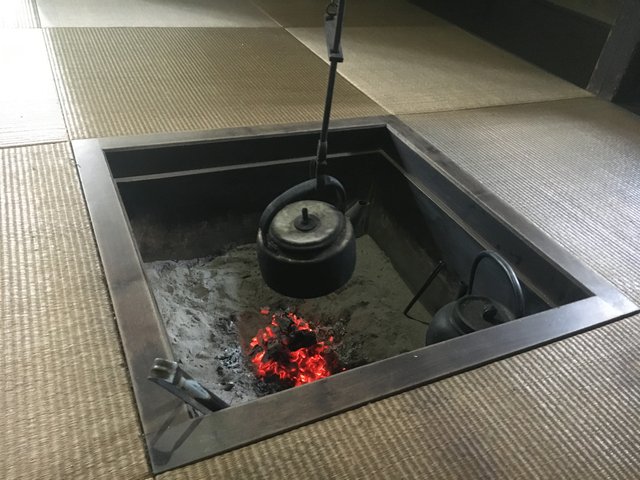
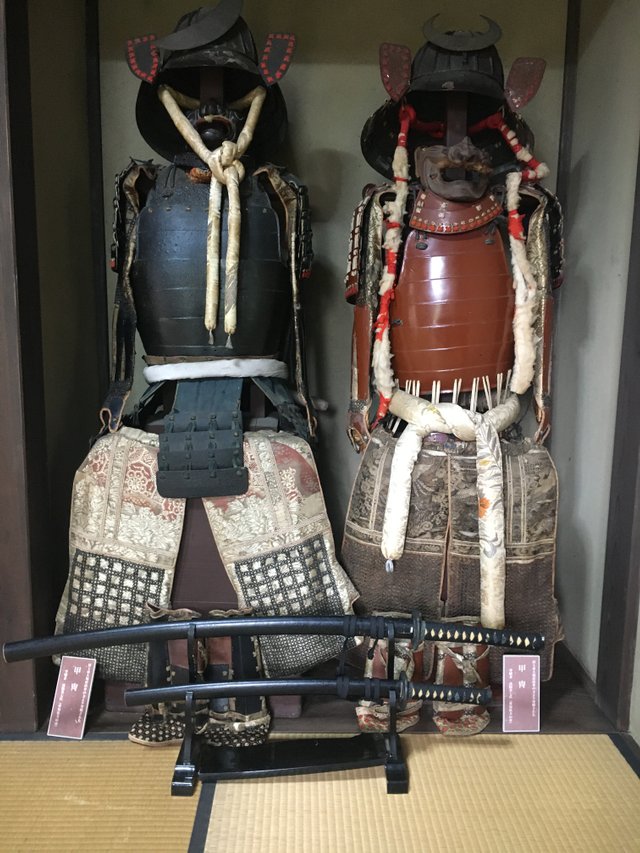
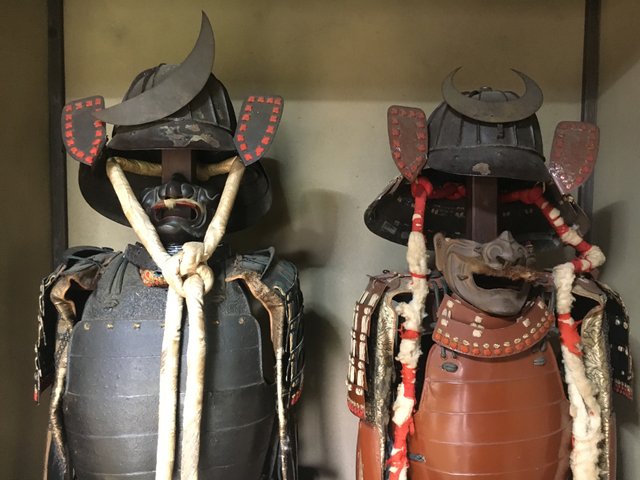
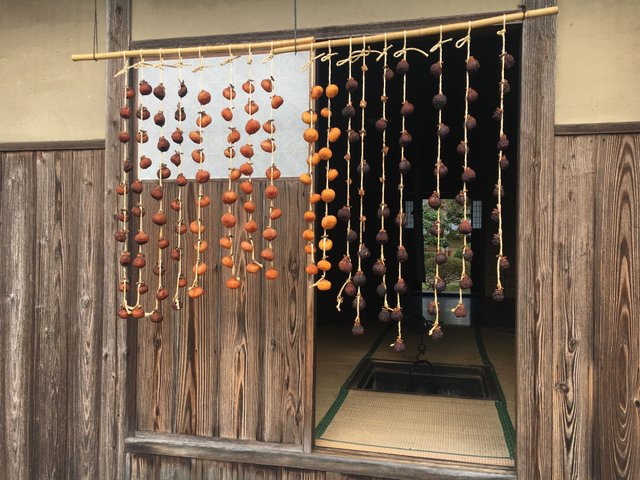
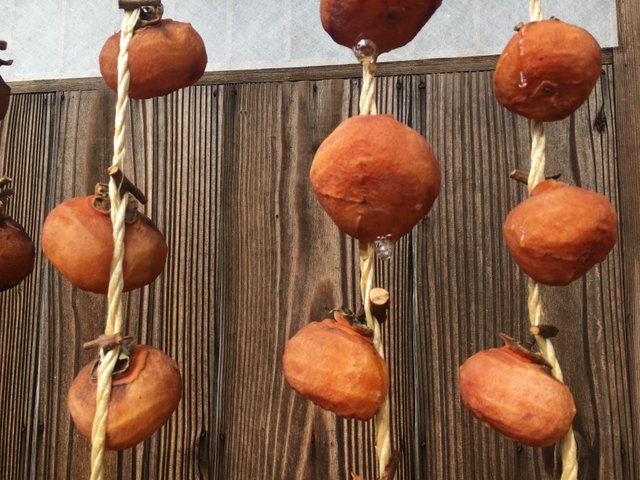
@maxinpower さん、こんにちは。
@japansteemitがこの記事をアップボートしました。
This post has been upvoted by @japansteemit
Steemitチームがアップボートしてくれるので #steemexclusive のタグ、 パワーアップしたときは #club5050 のタグを使って下さい。
Power Up and use #club5050 #steemexclusive for more upvotes from Steemit team.
How to use #steemexclusive 使い方
How to use #club5050 使い方
💡 Curation Guide (アップボートガイド) 💡
コミュニティーキュレーションのトレールフォローやSPデレゲーションのご協力お願いします🙇
Thanks a lot!
I have picked your post for recommendation at booming curation support today. I would like to remind you that we are not curators your luck lies in the curator's hand. Continue creating quality content here at Steem Japan Community.
Thank you!
Thanks a lot. The big vote came already, very nice!! And for sure I will continue posting at Steem Japan as well. Have a great day!
Thank you for sharing, I see all the pictures you show are cool.
cheers
Thanks.
Wowww que genial, me encanta esa casa.
STEEMとSBDがたくさんあるので、これを使ってパワーアップしたらもっともっとたくさん報酬が貰えると思います。
#club5050のお知らせ
https://steemit.com/hive-161179/@japansteemit/steem-japan-club5050-rule-club5050
Ok thanks, I will check into this again!
the house is cool like in the movie world📸👏
kind regards
[WhereIn Android] (http://www.wherein.io)
Du hast ein Upvote von mir bekommen, diese soll die Deutsche Community unterstützen. Wenn du mich unterstützten möchtest, dann sende mir eine Delegation. Egal wie klein die Unterstützung ist, Du hilfst damit der Community. DANKE!
Hi, @maxinpower,
Thank you for your contribution to the Steem ecosystem.
Please consider voting for our witness, setting us as a proxy,
or delegate to @ecosynthesizer to earn 100% of the curation rewards!
3000SP | 4000SP | 5000SP | 10000SP | 100000SP
thank you